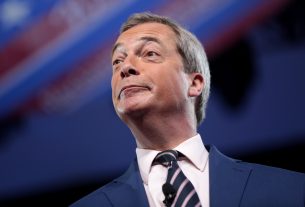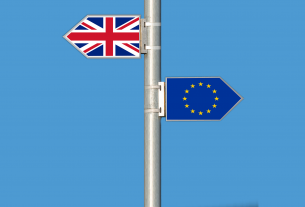Sajid Javid has warned manufacturers there will be no alignment with EU regulations after Brexit, signalling the “death knell for frictionless trade”, according to an industry expert.
The chancellor insisted UK manufacturers must adjust to new regulations and said the Treasury will not lend support to those that favour EU rules because companies “have known since 2016 that we are leaving the EU”.
In an interview with the Financial Times, the chancellor said: “There will not be alignment, we will not be a ruletaker, we will not be in the single market and we will not be in the customs union – and we will do this by the end of the year.”
‘Admittedly, they didn’t know the exact terms’
He added “We’re…talking about companies that have known since 2016 that we are leaving the EU.
“Admittedly, they didn’t know the exact terms.”
The employers organisation the CBI welcomed the chancellors “ambitious vision for the economy” but urged the government should not treat Brexit as “an obligation to diverge” from regulations.
“For some firms, divergence brings value, but for many others, alignment supports jobs and competitiveness – particularly in some of the most deprived regions of the UK,” said the CBI’s director general Dame Carolyn Fairbairn.
While Javid did not specify the EU rules he wants to drop in his interview with the FT, other business leaders have warned it could result in food price rises. The Food and Drink Federation’s (FDF) chief operating officer Tim Rycroft, told BBC Radio 4’s Today programme: “it sounds awfully like the death knell for the concept of frictionless trade with the EU”.
‘Serious risk to manufacturing competitiveness’
The pharmaceutical, automotive, chemicals, aerospace and food and drink industries – which employ 1.1 million people and contribute £98 billion to the UK economy – collectively warned the government in October 2019 that moving away from EU regulations could pose “serious risk to manufacturing competitiveness”.
Rycroft said the chancellor’s warning “means that our food and drink industry is going to have to spend the remaining months of 2020 preparing for a whole set of new checks and procedures and processes and costs in our trade with the EU.”
The FDF’s chief operating officer said the result “will be a very diverting year for us” as attention will be shifted from growth and customers towards “preparing for this outcome, and it means, probably, that food prices will rise once we formally leave at the end of the year.”
Sajid said: “There will be an impact on business one way or the other, some will benefit, some won’t.”
He pointed to the success of the Japanese car industry as one that “sells cars to the EU but they don’t follow EU rules.”
The Guardian report Javid’s “remarks will be seen as confirmation of a strategic departure from Theresa May’s deal in which she envisaged close alignment with the EU, in an effort to reduce friction at the border for traders.”
Trade talks will commence after the UK leaves the EU on January 31 and the prime minister has repeatedly ruled out extending the transition period beyond the end of 2020 – legislating against doing so in the Withdrawal Agreement Bill which was passed by the House of Commons with a 99 majority.
‘Tory promises of frictionless trade post Brexit not worth paper they were written on’
The Independent reports the “timeframe means the UK has given itself only 11 months to negotiate a complicated agreement, which usually take years to complete” and that “senior EU figures” have already warned the time allotted to reach a deal is not enough.
The shadow chancellor John McDonnell tweeted: “Tory promises of frictionless trade post Brexit prior to election now exposed as not worth paper they were written on. Fears now made real about food price increases & threats to jobs in motor industry & manufacturing. Right [wing] Ideology overriding common sense.”




